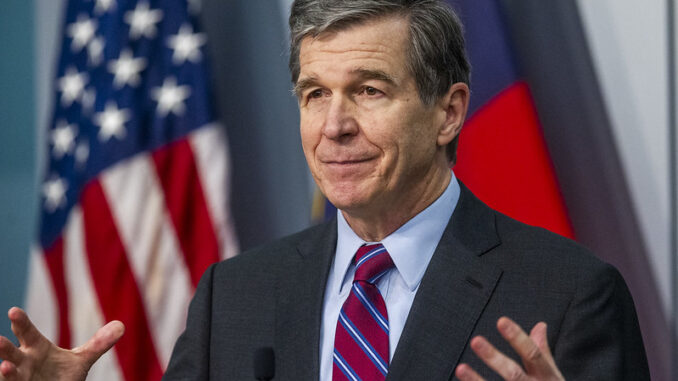
RALEIGH — Democratic North Carolina Gov. Roy Cooper has issued a new executive order outlining “bold” environmental justice actions.
Executive Order No. 292 will build on Cooper’s previous January 2022 Executive Order 246 and reestablishes the Secretary of Environmental Quality’s Environmental Justice and Equity Advisory Board as the Governor’s Environmental Justice Advisory Council.
“The cause of environmental justice began in North Carolina more than forty years ago and this effort will help our state take this challenge head on,” Cooper said in a press release on the new order. “This Executive Order directs a whole of government approach that listens to communities that are suffering from pollution and the effects of climate change, and takes action to help them become safer, healthier and more sustainable environments.”
Order 292 is also linked to President Joe Biden’s executive order signed on Jan. 27, 2021 that reaffirms the county’s “commitment” to environmental justice. That order also created federal environmental justice initiatives.
Per Cooper’s press statement, order 292 defines environmental justice as “the just treatment and meaningful involvement of all people, regardless of income, race, color, national origin, or Tribal affiliation, in agency policies and programming that affect human health, well-being, quality of life, and the environment” to protect people from “disproportionate and adverse human health effects and environmental hazards.”
“Executive Order No. 292 advances environmental justice and ensures state government will continue to center environmental justice in future decision-making processes,” Cooper’s release states.
Per the order, the mission of the Council is to “advise the Governor and state agencies on incorporating environmental justice into policies and programming, to provide clarity and consistency to the State’s approach to environmental justice, and to collaborate on, develop, and enhance state strategies to advance environmental justice (EJ).”
The Council will be made up of a maximum of 22 members. The governor will pick the chairs and will appoint 11 members. The other 11 will be designees of each of the Cabinet secretaries.
“The Governor’s Office and Cabinet agencies shall incorporate EJ considerations into their policies and programs to the extent permitted by law,” states order 292.
The Council is tasked with guiding state agencies on recognizing Environmental Justice (EJ) communities and optimizing mapping tools and data use. It will also recommend EJ principles to the Governor and propose EJ-promoting legislation and policies. Additionally, the Council aims to share EJ-related actions, data, and best practices among state agencies and raise awareness on crucial EJ topics. Finally, the Council will suggest a comprehensive EJ training plan for state agencies, facilitated by the Office of State Human Resources.
Within 120 days, each Cabinet agency is directed to develop at least three draft EJ goals and measurable outcomes that will be submitted to the Council and the goals will be given a 60-day public comment period.
The North Carolina Department of Information Technology (DIT) is required to create a “whole of government Environmental Justice Hub webpage to host environmental justice information and activities including the Mapping Tool and relevant grant information across the Administration.”
Similarly, the Board of Transportation, Environmental Management Commission, the Information Technology Strategy Board, the Land and Water Fund, the Parks and Recreation Trust Fund, and the Commission for Public Health, will have to come up with a “public participation plan informed by stakeholder input.”
Various reports on the activities of the Council along with EJ recommendations will be given to Cooper and cabinet secretaries by Oct. 15, 2024, and “annually thereafter.”


